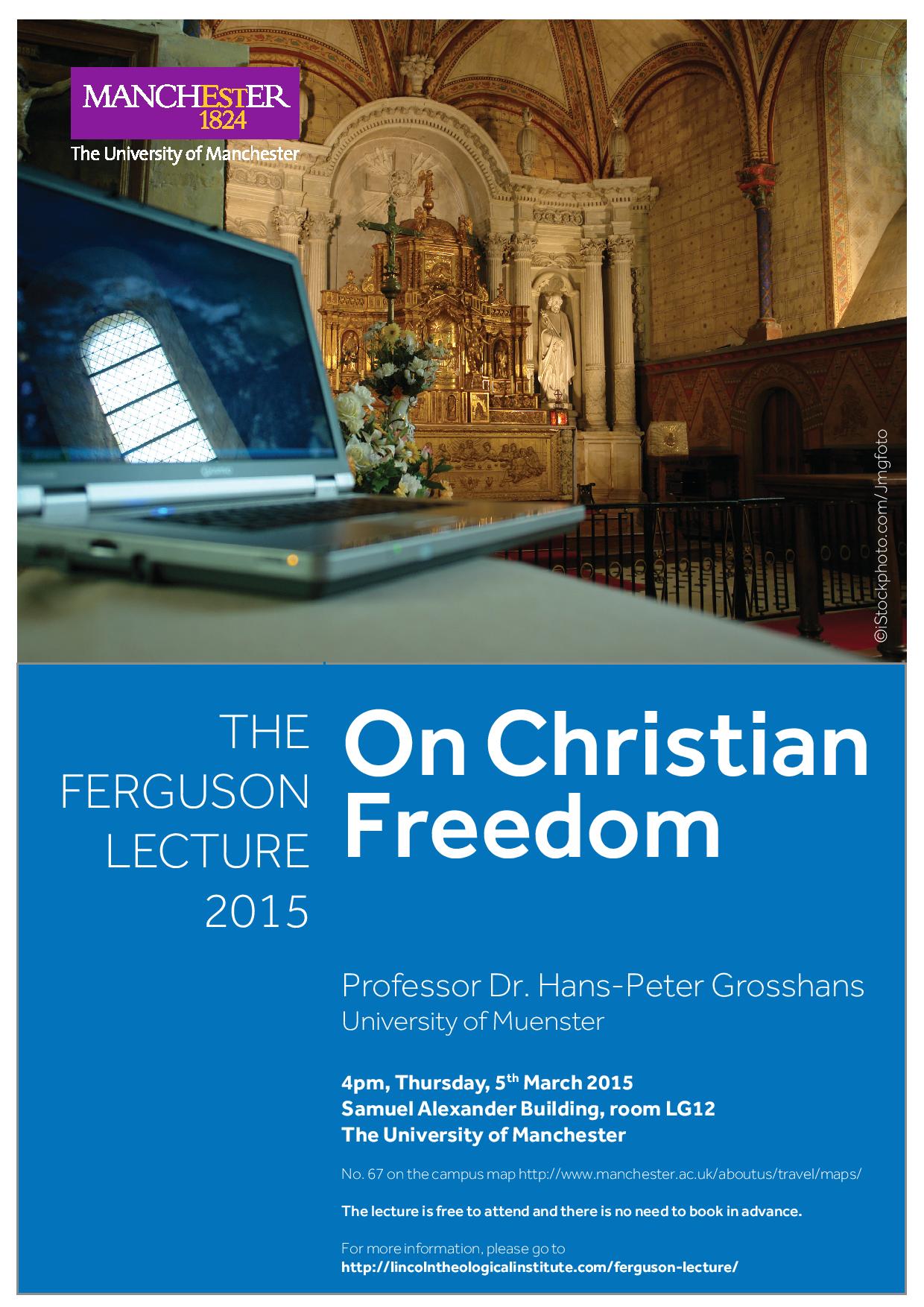
2015 - Prof. Dr. Hans-Peter Grosshans
Director of the Seminar for Systematic Theology and the Institute for Ecumenical Theology, Faculty of Protestant Theology of the University of Muenster.
‘On Christian Freedom’
In his latest book Soumission (submission) the French novelist Michel Houellebecq formulates the – as one of his figures says – simple idea, that the peak of human happiness is reached in absolute submission. In religion we find this idea in form of the submission of human beings to God. But this idea contradicts all the theological efforts in modern times to reconcile faith in God with human freedom. In modern times especially Christian religion cannot any longer be based on the idea of a general submission of the believers to God and his will. Instead Christian theology has to concentrate on a positive relation between faith in God and human freedom, in the sense, that even the God-relation of the believers is conceived in terms of human freedom. In Reformation times in the 16th century Philipp Melanchthon has even identified Christianity and freedom when he formulated “Christianity is freedom”. But surely this identity is not without problems and some critics say, that it directly leads into secularisation and is part of Christianity abandoning itself. The lecture will discuss various important aspects of the relation of Christian faith and freedom, starting with the understanding of freedom in the Old and the New Testament. But the main focus will be on the consequences for a concept of God in modern times which satisfies the condition of human freedom, but as well is sound with Holy Scripture. Discussion will be as well about the consequences for our general understanding of religion in the present times, which is sound with human freedom. This then will be drawn out into pressing questions of religious freedom in our present societies. It will be the objective of these reflections to work out a few criteria for distinguishing critically the manifold phenomena of religion.